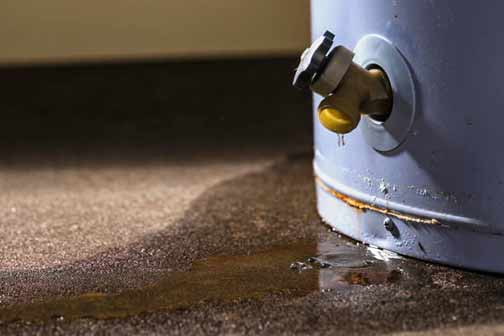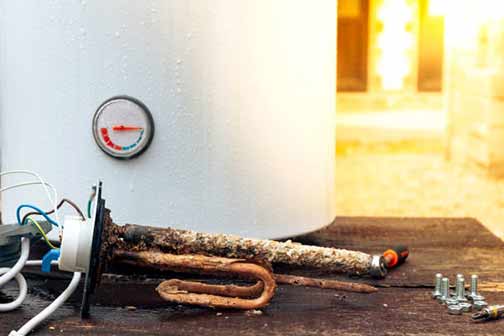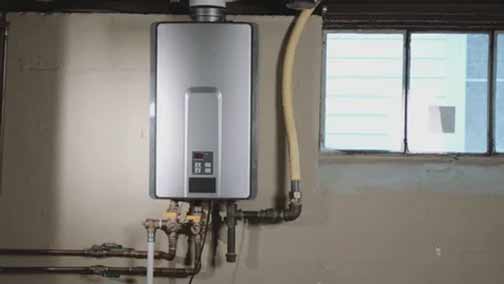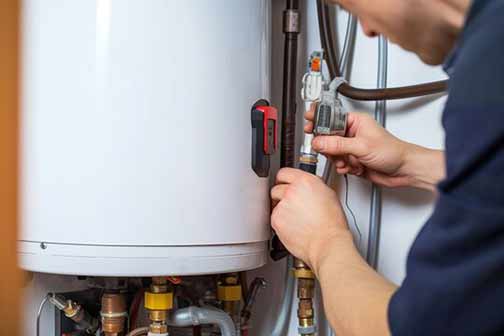Understanding the Importance of a Functional Water Heater in Your Home
A water heater is an essential appliance in any household, providing hot water for various daily activities such as bathing, cooking, and cleaning. Without a properly functioning water heater, these activities can become inconvenient and uncomfortable. Therefore, it is crucial to ensure that your water heater is in good working condition and to know when it might be time for a replacement. A reliable water heater contributes significantly to the overall comfort and efficiency of your home.
Identifying Signs That Your Water Heater Might Need Replacement
Recognizing the signs that indicate your water heater might be due for replacement can save you from unexpected breakdowns and costly repairs. Here are some common indicators:
Age of the Water Heater: Knowing When It’s Time
The age of your water heater is a significant factor in determining whether it needs to be replaced. Most water heaters have a lifespan of about 8 to 16 years. If your water heater is approaching or has surpassed this age range, it may be time to consider a replacement. Regular maintenance can extend the life of your water heater, but eventually, all units will need to be replaced to ensure optimal performance.
Inconsistent Hot Water Supply: A Warning Sign
If you notice that your water heater is no longer providing a consistent supply of hot water, it could be a sign of a failing unit. Fluctuations in water temperature or a lack of hot water altogether are red flags that should not be ignored. These issues can indicate underlying problems such as a failing heating element or sediment buildup within the tank.
Strange Noises: What They Mean for Your Water Heater
Unusual noises coming from your water heater, such as popping, rumbling, or banging sounds, can indicate sediment buildup or other internal issues. These noises often suggest that the water heater is struggling to function correctly and may be nearing the end of its lifespan. Regular flushing of the tank can help mitigate these issues, but persistent noises may require a professional inspection.
Discolored or Rusty Water: A Sign of Corrosion
Discolored or rusty water coming from your taps is a clear sign that there may be corrosion inside your water heater. This can lead to leaks and further damage, making it necessary to replace the unit. Corrosion can compromise the structural integrity of the tank, leading to potential water damage in your home.

Leaks Around the Water Heater: An Urgent Issue
Water pooling around your water heater is a serious issue that requires immediate attention. Leaks can indicate that the tank is cracked or damaged, and replacing the water heater is often the best solution to prevent further water damage to your home. Addressing leaks promptly can save you from costly repairs and potential safety hazards.
Evaluating the Condition of Your Water Heater: A Step-by-Step Guide
Before deciding to replace your water heater, it is essential to evaluate its current condition thoroughly. Here are some steps to help you assess your water heater:
Inspect the Exterior: Checking for Visible Damage
Examine the exterior of your water heater for any visible signs of damage, such as rust, corrosion, or leaks. Pay close attention to the area around the base of the unit, as this is where leaks are most likely to occur. Regular visual inspections can help you catch potential issues early and address them before they escalate.
Check the Anode Rod: Preventing Corrosion
The anode rod is a critical component of your water heater that helps prevent corrosion. Over time, the anode rod can become worn out and need replacement. Inspect the rod for signs of wear and replace it if necessary to extend the life of your water heater. A well-maintained anode rod can significantly prolong the lifespan of your unit.
Test the Temperature and Pressure Relief Valve: Ensuring Safety
The temperature and pressure relief (T&P) valve is a safety feature that prevents your water heater from overheating or building up excessive pressure. Test the valve periodically to ensure it is functioning correctly. If the valve is not working, it may be time to replace the water heater. A malfunctioning T&P valve can pose serious safety risks, so regular testing is crucial.
Flush the Tank: Maintaining Efficiency
Sediment buildup in the tank can reduce the efficiency of your water heater and cause damage over time. Flushing the tank regularly can help remove sediment and improve the performance of your water heater. If flushing the tank does not resolve performance issues, it may be time for a replacement. Regular maintenance can help you avoid costly repairs and extend the life of your water heater.

Benefits of Replacing Your Water Heater: Why It’s Worth the Investment
Replacing an old or malfunctioning water heater can offer several benefits, including:
Improved Energy Efficiency: Saving Money and the Environment
Newer water heaters are designed to be more energy-efficient, which can lead to lower utility bills and reduced environmental impact. Investing in a modern, energy-efficient water heater can save you money in the long run. Energy-efficient models often come with advanced features that enhance performance and reduce energy consumption.
Enhanced Performance: Reliable Hot Water Supply
A new water heater can provide a more reliable and consistent supply of hot water, improving your overall comfort and convenience. You can enjoy hot showers, efficient dishwashing, and other daily activities without worrying about interruptions. Upgrading to a new unit can eliminate the frustrations associated with an unreliable water heater.
Increased Home Value: Attracting Potential Buyers
Upgrading to a new water heater can increase the value of your home. Potential buyers are often attracted to homes with modern, energy-efficient appliances, making it a worthwhile investment if you plan to sell your property in the future. A new water heater can be a selling point that sets your home apart from others on the market.
Choosing the Right Water Heater for Your Home: Factors to Consider
When it comes to selecting a new water heater, there are several factors to consider to ensure you choose the right unit for your home:
Type of Water Heater: Exploring Your Options
There are various types of water heaters available, including tankless, traditional tank, heat pump, and solar water heaters. Each type has its advantages and disadvantages, so it is essential to research and determine which one best suits your needs and preferences. Tankless water heaters, for example, offer on-demand hot water and can save space, while traditional tank water heaters are typically more affordable upfront.

Size and Capacity: Matching Your Household’s Needs
The size and capacity of the water heater you choose should be based on the number of people in your household and your hot water usage. A unit that is too small may not provide enough hot water, while a unit that is too large can result in higher energy costs. Consider your household’s daily hot water needs and choose a unit that can meet those demands efficiently.
Energy Efficiency: Reducing Costs and Environmental Impact
Look for water heaters with high energy efficiency ratings to save on utility bills and reduce your environmental footprint. Energy-efficient models may have a higher upfront cost but can provide significant savings over time. Check for ENERGY STAR ratings and other certifications that indicate superior energy performance.
Installation and Maintenance Costs: Budgeting for the Long Term
Consider the installation and maintenance costs associated with the water heater you choose. Some models may require professional installation and regular maintenance, which can add to the overall cost. Be sure to factor these expenses into your decision-making process. Investing in a quality water heater and proper installation can prevent future issues and save you money in the long run.
Conclusion: Making an Informed Decision on Water Heater Replacement
Ensuring that your water heater is in good working condition is essential for maintaining the comfort and functionality of your home. By recognizing the signs that indicate your water heater may need replacement, evaluating its current condition, and understanding the benefits of upgrading to a new unit, you can make an informed decision about when to invest in a replacement. Choosing the right water heater for your home involves considering various factors, including the type, size, energy efficiency, and associated costs.
With expert advice and careful consideration, you can select a water heater that meets your needs and provides reliable, efficient performance for years to come. Taking the time to research and evaluate your options will ensure that you make the best choice for your household and enjoy the benefits of a well-functioning water heater.


